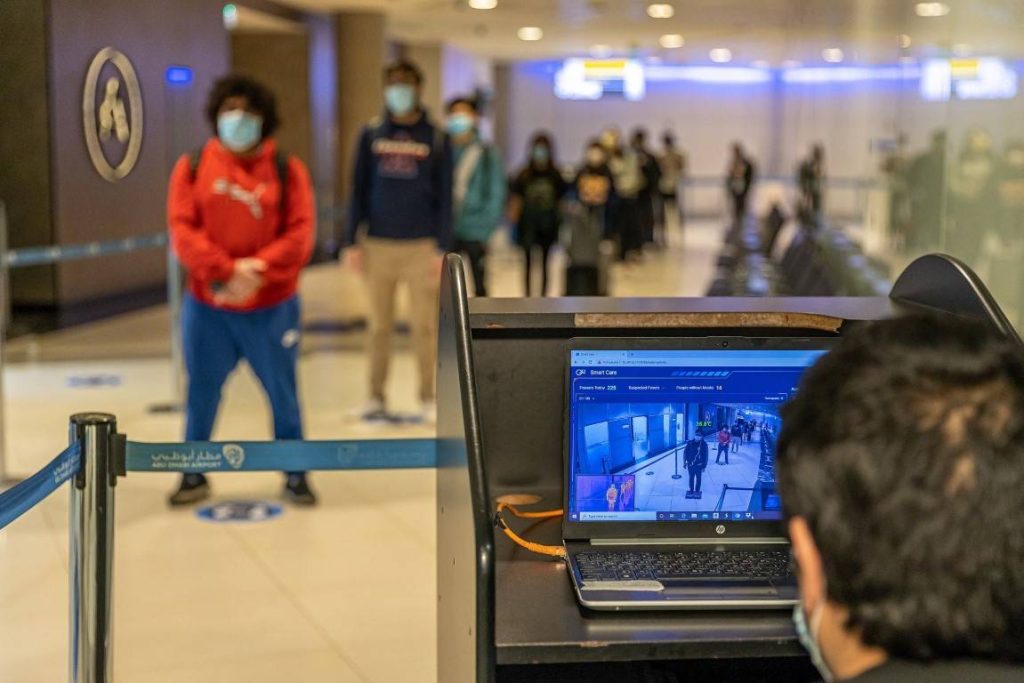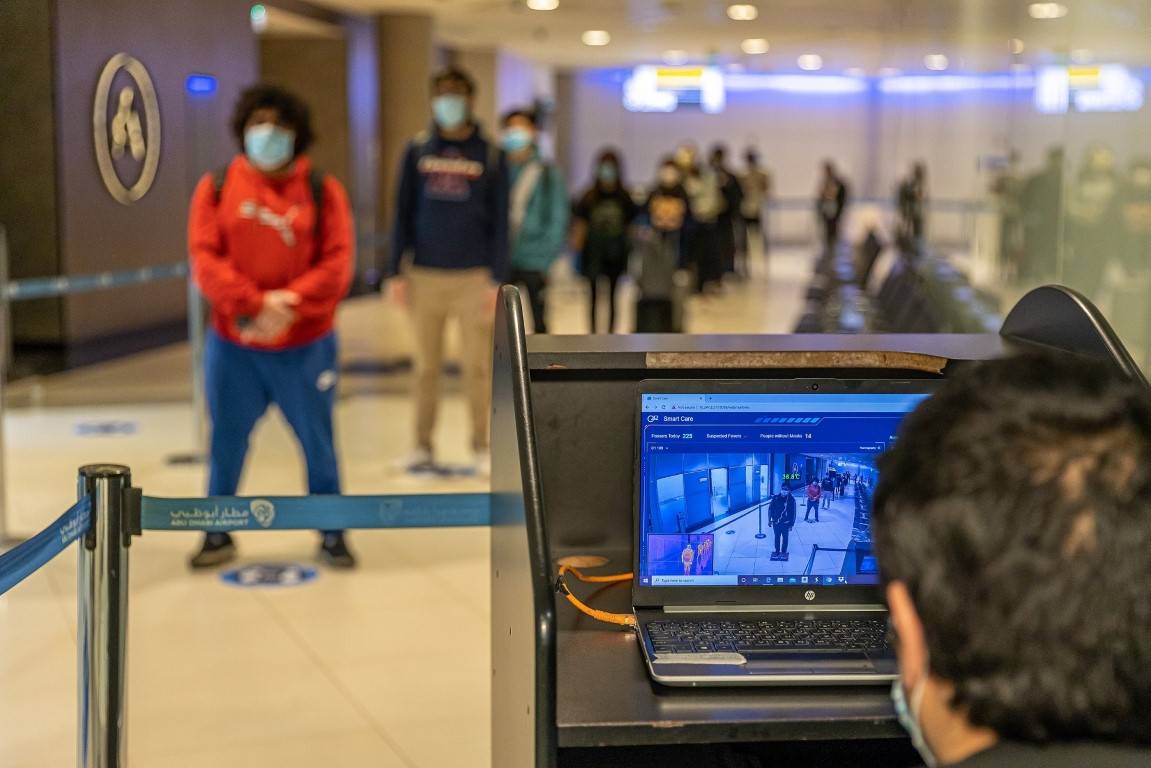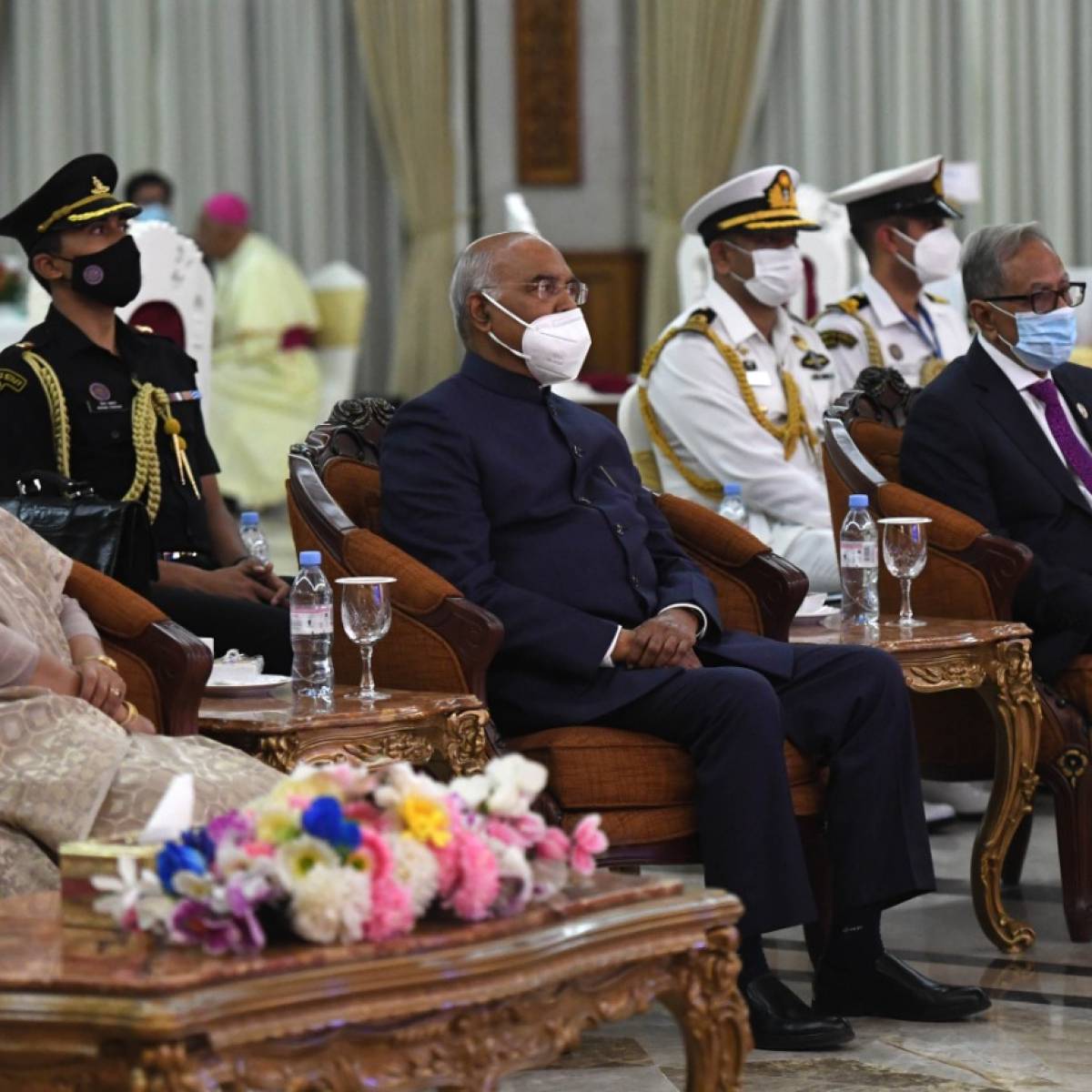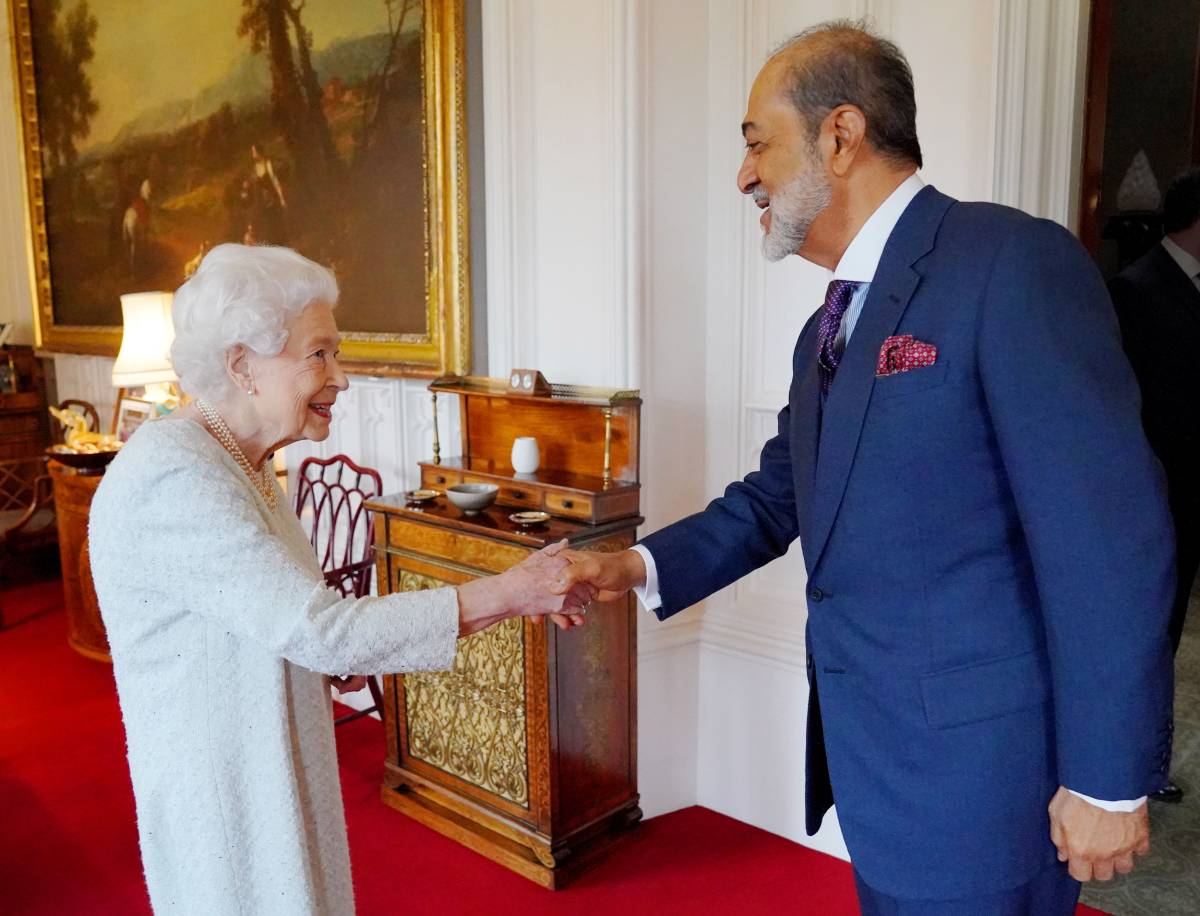EDE scanners use advanced technology to rapidly detect potential Covid-19 cases without storing personal information…reports Asian Lite Newsdesk
Abu Dhabi Emergency, Crisis and Disasters Committee has updated the procedure to enter Abu Dhabi emirate from within the UAE and approved the use of EDE scanners at entry points, effective Sunday, 19 December 2021.
The decision is aimed at strengthening precautionary measures to help maintain the low Covid-19 infection rate of 0.05 per cent of total tests in Abu Dhabi emirate. EDE scanners use advanced technology to rapidly detect potential Covid-19 cases without storing personal information.

Potential positive Covid-19 cases will be referred to an on-site testing centre, where they will be given a free antigen test, and results within 20 minutes.
Abu Dhabi’s low infection rate has been successfully achieved through the ongoing implementation of preventive and precautionary measures, including continuous testing and contact tracing, use of the green pass system to access public places and events, and high vaccination rates.
UAE tightens border curbs
The National Emergency Crisis and Disasters Emergency Management Authority (NCEMA) the General Civil Aviation Authority (GCAA) have announced the suspension of all inbound flights for national and international carriers and transit passengers from the Republic of Congo, from Friday, December 17, effective 8.00 a.m.
This includes suspending the entry of travellers who were in the Central African country 14 days before coming to the UAE, while flight operations will continue to transport passengers from the UAE to the same country.

The GCAA affirmed that UAE nationals, their first degree relatives, domestic workers under their sponsorship, diplomatic missions, official delegations between UAE and Congo and Golden residence holders are excluded from this decision.
The excluded category should present a negative COVID-19 test obtained within 48 hours of departure and a Rapid-PCR test at the airport within six hours of departure and another PCR test at the airport upon arrival to UAE.
A 10-day quarantine and a PCR test on the ninth day of entering the country is required for UAE nationals, their first-degree relatives, domestic workers under their sponsorship, diplomatic missions and golden residence holders.
GCAA also affirmed that it is required for those coming from Congo through other countries to stay in those countries for at least 14 days before being allowed to enter the UAE.
UAE citizens are prohibited from travelling to Congo except for the country’s emergency treatment cases, official delegations, and scholarships.
In addition, the two authorities have introduced new travel requirements for those coming on direct flights from the following countries: Nigeria, Kenya, Rwanda and Ethiopia. These include having a negative COVID-19 test obtained within 48 hours and a Rapid-PCR test at the airport within six hours of the departure.
ALSO READ: UAE ranks first on Bloomberg’s Covid Resilience Ranking
Those coming from these four countries to the UAE on transit flights have to have a negative COVID-19 test obtained within 48 hours and a Rapid-PCR test at the airport of their main point of departure within six hours of travelling in addition to another Rapid PCR test at the transit airport before being allowed to enter the UAE.
GCAA called on all travellers affected by the decision to follow up and communicate with the airlines to amend and schedule their flights and to ensure their safe return to their final destinations without any delay or other obligations.














